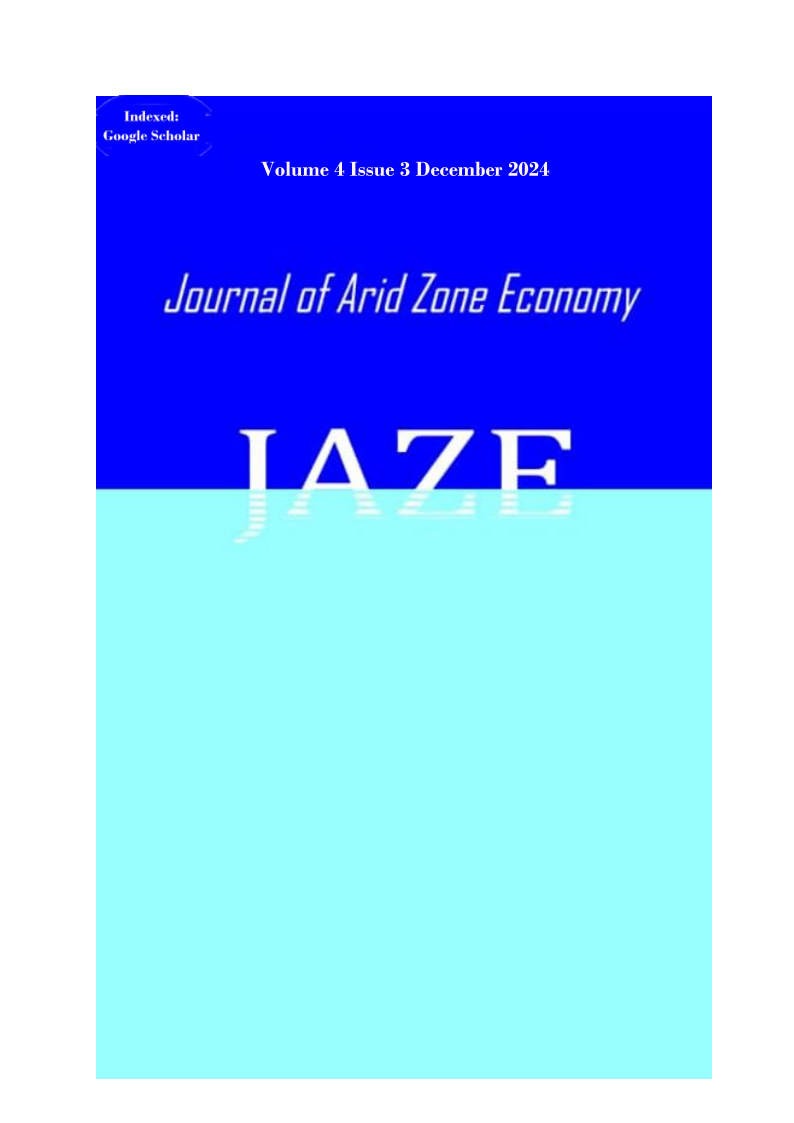Asymmetric Analysis of the Impact of Oil Price Shock on Output Growth in Nigeria
Keywords:
Asymmetric, Oil price shock, Output Growth, NARDLAbstract
Nigeria’s economy is heavily dependent on crude oil, which contributes
35% of GDP, over 90% of exports, and 80% of government revenues.
Ranked 11th in crude oil production and 7th in exports, Nigeria’s reliance
on oil makes it vulnerable to price volatility, causing economic instability.
Despite extensive research on oil dependency, few studies have explored
how nonlinear oil price changes affect Nigeria's output growth. Hence, this
study investigates the relationship between oil price fluctuations and output
growth using a Nonlinear Autoregressive Distributed Lag (NARDL) model.
The findings show that asymmetric changes in oil prices significantly
impact output. A 1% oil price increase raises output by 45% in the short
run, while a 1% decrease leads to a 0.6% rise. Both positive and negative
oil price changes influence government expenditure, underscoring the
direct impact of oil price volatility on fiscal policy and economic
performance. This implies that an increase in oil prices affects output
differently than a decrease, highlighting the asymmetric and nonlinear
relationship between oil prices and economic performance. Fluctuations in
oil prices significantly influence production levels, costs, and overall
economic activity, particularly in oil-dependent economies. Policymakers
must address these effects, employing strategies tailored to oil price
increases (e.g., inflation control) and decreases (e.g., boosting investment).
The study emphasizes the need for Nigeria to diversify its economy,
reducing reliance on oil to ensure long-term stability. By strengthening
non-oil sectors and enhancing fiscal management, Nigeria can better
withstand global oil price shocks and foster sustainable economic
resilience.

Downloads
Published
Issue
Section
License
Copyright (c) 2024 Journal of Arid Zone Economy

This work is licensed under a Creative Commons Attribution 4.0 International License.

